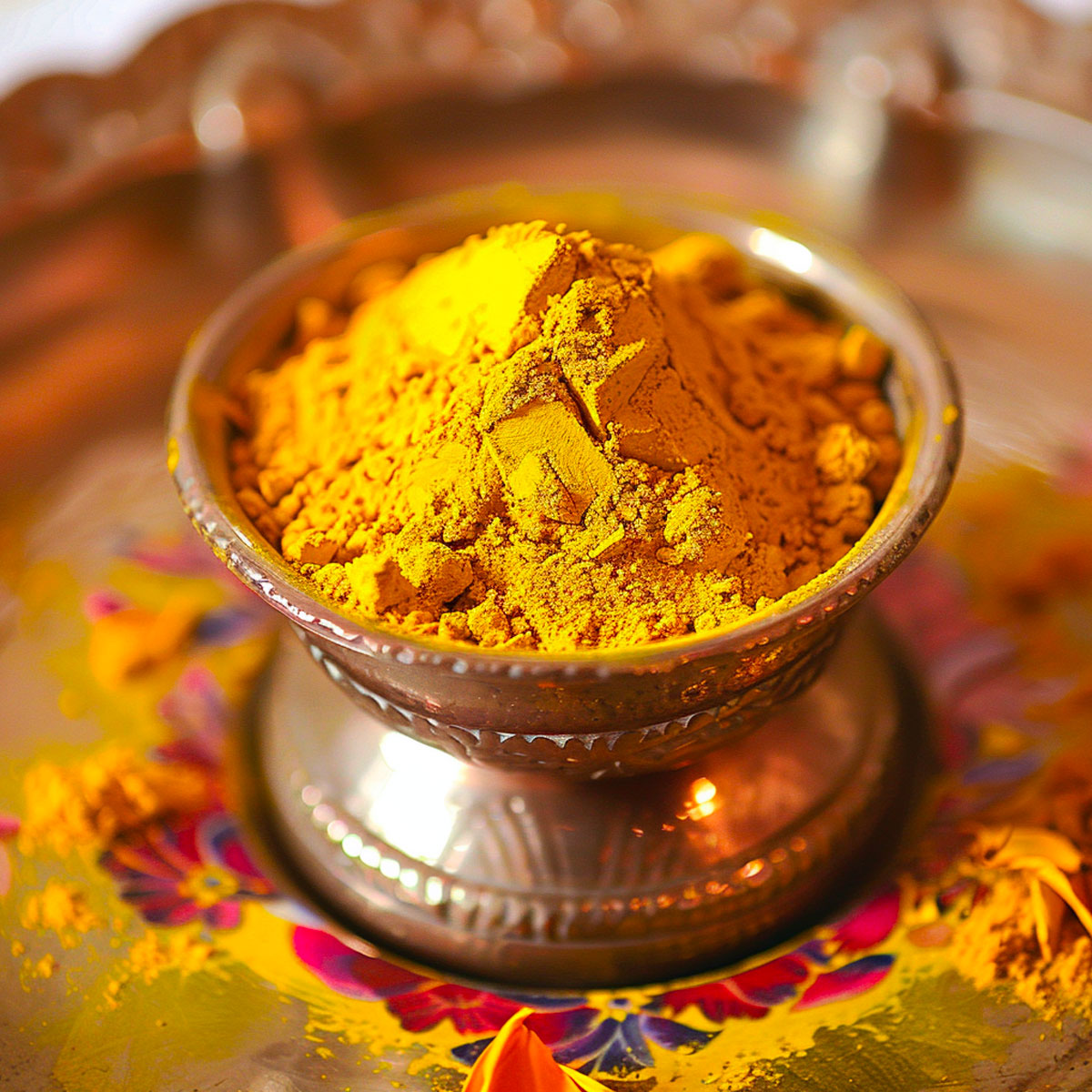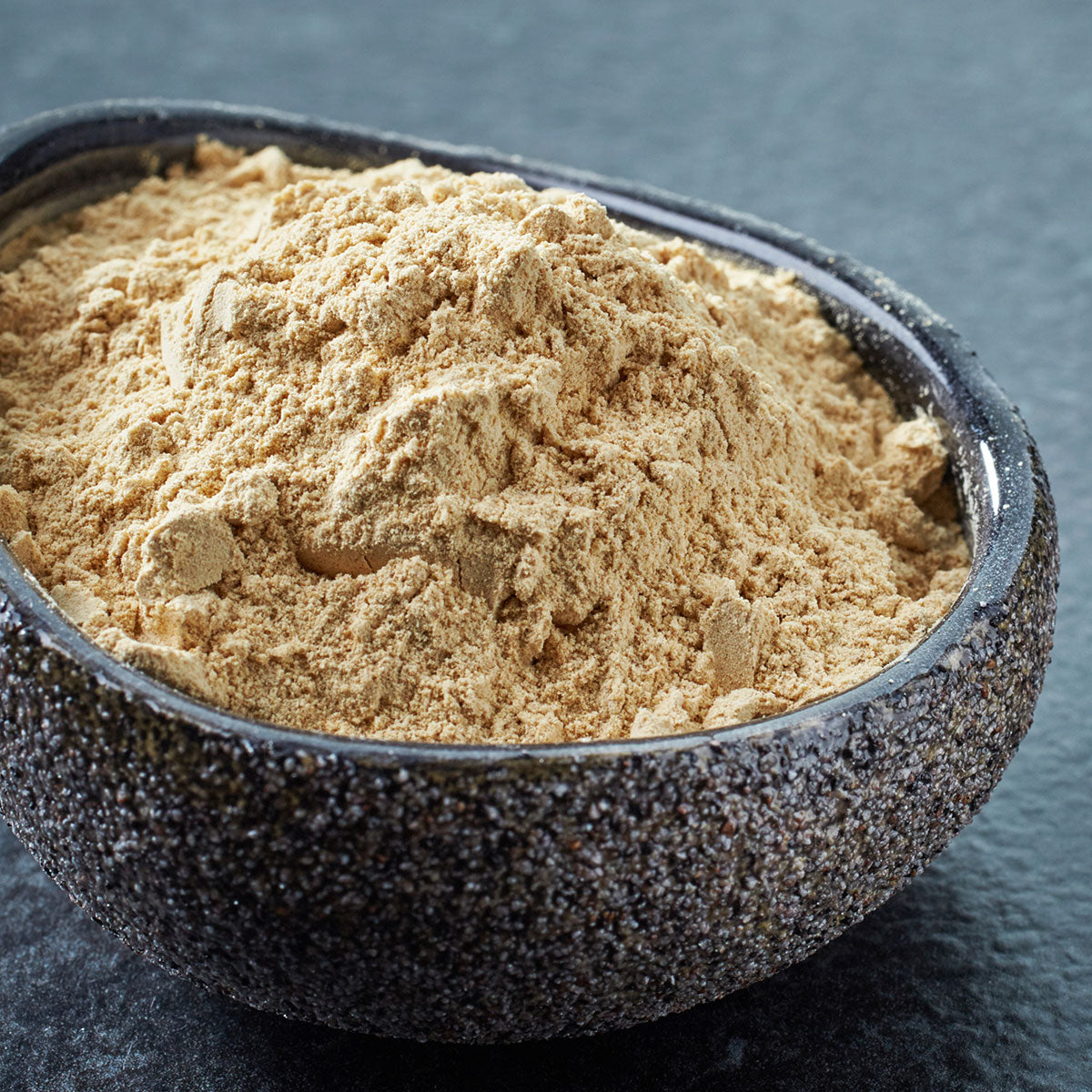Vitamin B12 is essential for energy, mental clarity and a great immune system but are you getting enough in your diet? Read our post to discover:
- Are you at risk of Vitamin B12 deficiency?
- Which plant sources contain true B12?
- Alternative approach to getting B12 from foods
Let’s get stuck in…

WHY YOU NEED B12
This powerful “energy vitamin” is critical to many vital functions in your body but sadly many people are deficient in it. A 2000 study in the American Journal of Clinical Nutrition found almost 40% of participants were lower in Vitamin B12 than optimal.
Your body uses B12 for:
- Physical and emotional energy – as B12 helps oxygenate the body
- Mental clarity, concentration and memory
- Mood regulation, healthy nervous system and psychological function
- Female reproductive health and pregnancy
- Healthy immune system function
- Adrenal hormone production
- Proper circulation
- Cell formation
- Managing homocysteine – this amino acid can become too high without enough B Vitamins, causing damage to our arterial walls and increasing disease risk.
Reasons you may be low in B12
- Eating gluten-containing foods (wheat, rye, oats, barley) – Vitamin B12 is one of the common nutrient deficiencies associated with gluten intolerance - which results from intestinal damage from gluten. Even if you are not celiac you may be gluten intolerant (and show no symptoms of digestive tract disorders).
- Medications – some medications reduce our stomach acid, such as those for indigestion and reflux disease. Also according to one study, taking Metformin, a blood sugar regulating medication is a risk factor for B12 deficiency.
- Digestive issues – conditions such as IBS and Crohn’s can mean you don’t absorb Vitamin B12 efficiently.
- Dietary restrictions – B12 deficiency is more common amongst strict vegans as animal products are the richest sources of B12.
- Low Stomach Acid (Achlorhydria) – occurs due to acid blocking medication (antacids), low thyroid function, chronic stress
- Age – as we get older, our stomach acid production declines and less B12 is absorbed from our food. From the age of 50, increasing B12 in your diet can make a difference to your health.
"Consumption of gluten-containing foods may be the cause of Vitamin B12 deficiency"
TWEET IT
Read on to find out the surprising plant sources of B12>>
Get Tested and…Consider the International Limits of Deficiency
If you’re at risk of a Vitamin B12 deficiency, get tested and work on including more of B12 rich foods (mentioned below) in your diet. Don’t forget to retest after an agreed period with your practitioner.
It’s important to be aware that the levels of B12 currently considered normal in the US are actually associated with a B12 deficiency elsewhere in the world. In the US values of less than 200 pg/mL are a sign of a Vitamin B12 deficiency, whereas in Japan and Europe, the lower limit is between 500-550 pg/mL.
Sally Pacholok R.N. and Jeffery Stewart D.O. are the experts on diagnosing and treating B12 deficiency, recommend treating for B12 deficiency in all patients with B12 levels less than 450 pg/mL and that have symptoms. They also prescribe treatment to patients who have normal B12, but elevated urinary methylmalonic acid (MMA), homocysteine and/or holotranscobalamin.
You CAN Get True B12 From Chlorella
Animal sources are considered the richest sources of B12. Not many plant sources are known to contain B12 and those that do mainly contain an analog B12. An analog blocks the uptake of the real (true) B12, meaning your body needs more of the true B12. That's why it's widely believed that for folks on a plant-based diet the options of B12 are quite limited.
The good news is that you can get true B12 from chlorella, which are powerful supergreen microalgae.
Below are some of the findings from the studies on this topic.
- A 2009 study in the Journal of Medicinal Food showed that taking chlorella increased serum levels of B12 in vegan and vegetarians with a B12 deficiency. The study concluded that B12 in chlorella was in its true bioavailable form.
- Another study found that vegans consuming Nori and/or Chlorella had serum vitamin B-12 concentrations twice as high as those vegans not using them.
- A study in the Journal of Nutritional Science and Vitaminology found that algal Vitamin B12 from chlorella tablets was a bioavailable source for mammals.
- Chlorella supplementation was shown to significantly reduce the risk of pregnancy associated anemia, proteinuria and edema. A Japanese study published in the journal of Plant Foods for Human Nutrition concluded that Chlorella may be a useful source of iron, Vitamin B-12 for pregnant women.
"Taking chlorella increased serum levels of B12 in vegans and vegetarians with B12 deficiency"
TWEET THIS
How much chlorella should you take to top up your B12? Depending on your B12 levels (and your diet) you’re best having 2-3 servings of chlorella daily.
Check out our delicious Chlorella recipes on our website and in our FREE recipe eBook that you can download here.
Can You Get B12 From Spirulina?
Fun fact: did you know that spirulina are not algae? It’s actually cyanobacteria and belongs to a totally different kingdom than chlorella, a kingdom of Protista!
Spirulina is a rich source of B12. Despite that, some experts believe that in B12 in spirulina is in a form that is not absorbed.
However, a 2010 study in the Journal of Agricultural and Food Chemistry found the opposite. It showed that B12 in spirulina contains “methylcobalamin, a form of B12 of high biological activity”.
Paul Pitchford (a leading authority in the field of nutrition and foundational healing) in his book "Healing with Wholefoods" states that spirulina B12 is indeed useful if, on the same day, it is combined with another source of B12 such as yeast flakes.
For best results with your B12 levels we recommend eating our spirulina with other B12-rich foods such as the ones listed below.
It's easy to get spirulina in your diet! Make a delicious Spirulina Smoothie, Spirulina Cashew Cream or even a Spirulina Basil Pesto!
Easy Ways to Get a Variety of B12 in Your Diet
If you are on a plant-based diet it’s important to eat a combination of plant sources of B12 each day rather than only relying on one food type.
Have at least 2-3 of these B12 sources per day:
- Organic Burst Chlorella in the morning. Make a delicious Mint Chocolate Chip Chlorella Smoothie (get the recipe in our free eBook)
- A sprinkling of nutritional yeast flakes on your lunch
- Organic Burst Spirulina in the afternoon. Make Spirulina Superbites and keep in your work fridge
- White button mushrooms sautéed or added in your soup
- Seaweed, especially nori, added in your soups (at the end of cooking). Make grain-free quinoa sushi with nori and apple cider vinegar
- A side dish of tempeh or kimchi in the evening
- Some miso soup as a snack
Read on to discover an alternative approach to getting B12 from food >>
Other Rich Sources of B12
If you are not vegan or are severely deficient in B12 the below options are rich sources in addition to the plant sources above. It’s important to only choose organic, wild or buy on farmers’ market directly from the farmers you know when it comes to these foods (in order to avoid the intake of chemicals and poor treatment of animals):
- Grass-fed organic beef and beef liver
- Venison
- Wild Alaskan salmon
- Seafood
- Organic and pasture-raised poultry
- Organic eggs
Produce More B12 Yourself!
You can have sufficient levels of B12 by supporting and normalising your gut flora. The beneficial bacteria in your gut actually produce B12 for you!
For instance, a study in the Journal of Applied Microbiology has shown that one type of such bacteria, Lactobacillus reuteri, may help prevent a B12 deficiency by producing a biologically active form of B12.
In order to help your beneficial bacteria produce B12, learn to look after your gut. Avoid foods and behaviors that destabilize your gut flora: sugar, gluten, processed foods, overuse of antibiotics, household chemicals, pesticides etc.
Nourish your gut flora with fermented foods and have Organic Burst Chlorella daily (that is known to help the gut flora).
"Look after your gut to enable the beneficial bacteria to produce Vitamin B12"
TWEET THIS
LET US KNOW WHAT YOU THINK
If you have experience of B12 deficiency and have any thoughts to add, we and your fellow Bursters would love to hear about it!
REFERENCES
Plasma vitamin B-12 concentrations relate to intake source in the Framingham Offspring study.
American Journal Clinical Nutrition. 2000 Feb; 71(2): 514-22.
Authors: Tucker KL1, Rich S, Rosenberg I, Jacques P, Dallal G, Wilson PW, Selhub J.
Risk Factors of Vitamin B12 Deficiency in Patients Receiving Metformin
JAMA, October 9, 2006, Vol 166, No. 18
Rose Zhao-Wei Ting, MBBS; Cheuk Chun Szeto, MD, FRCP; Michael Ho-Ming Chan, FRCPA, FHKCPath; Kwok Kuen Ma, MBBS; Kai Ming Chow, MRCP
Lactobacillus reuteri CRL 1098 prevents side effects produced by a nutritional vitamin B deficiency
J Appl Microbiol. 2009 Feb;106(2):467-73
Authors: V C Molina, M Médici, M P Taranto, G Font de Valdez
Nutritional Supplementation with Chlorella pyrenoidosa Lowers Serum Methylmalonic Acid in Vegans and Vegetarians with a Suspected Vitamin B12 Deficiency.
J Med Food. 2015 Oct 20. Epub 2015 Oct 20.
Authors: Randall Edward Merchant, Todd W Phillips, Jay Udani
Chlorella pyrenoidosa Supplementation Reduces the Risk of Anemia, Proteinuria and Edema in Pregnant Women
J Plant Foods for Human Nutrition, March 2010, Volume 65, Issue 1, pp 25-30
Authors: Shiro, Hideo Takekoshi, Masuo Nakano
Vitamin B-12 status of long-term adherents of a strict uncooked vegan diet ("living food diet") is compromised.
J Nutr. 1995 Oct;125(10):2511-5.
Rauma AL1, Törrönen R, Hänninen O, Mykkänen H.
Characterization and bioavailability of vitamin B12-compounds from edible algae.
J Nutr Sci Vitaminol (Tokyo). 2002 Oct;48(5):325-31
Authors: Watanabe F1, Takenaka S, Kittaka-Katsura H, Ebara S, Miyamoto E.
Purification, identification, and characterization of methylcobalamin from Spirulina platensis.
J Agric Food Chem. 2010 Sep 22 ;58(18):9925-30.
Authors: Anantharajappa Kumudha, Sagaya Selva Kumar, Munna Singh Thakur, Gokare Aswathanarayana Ravishankar, Ravi Sarada





